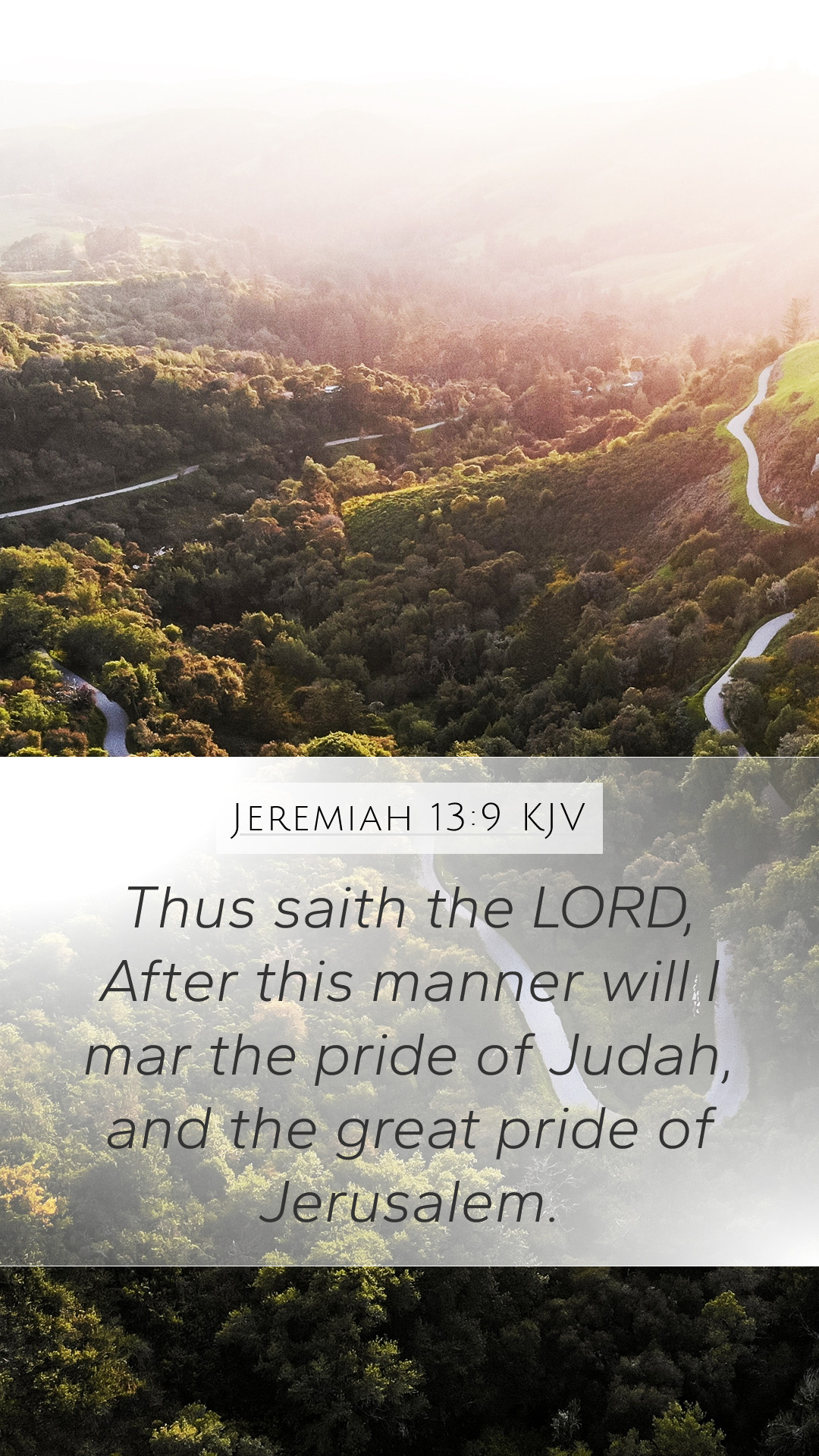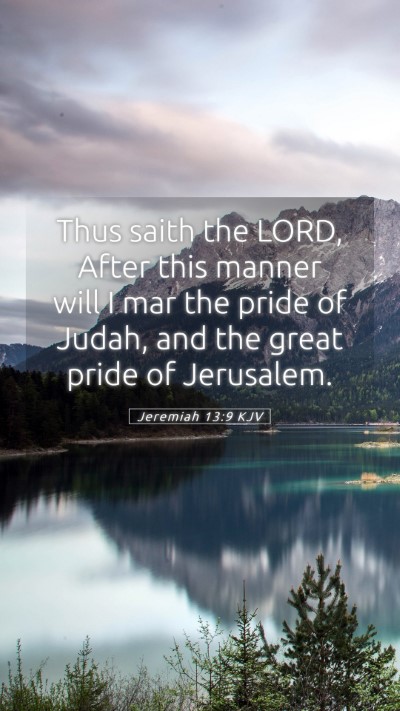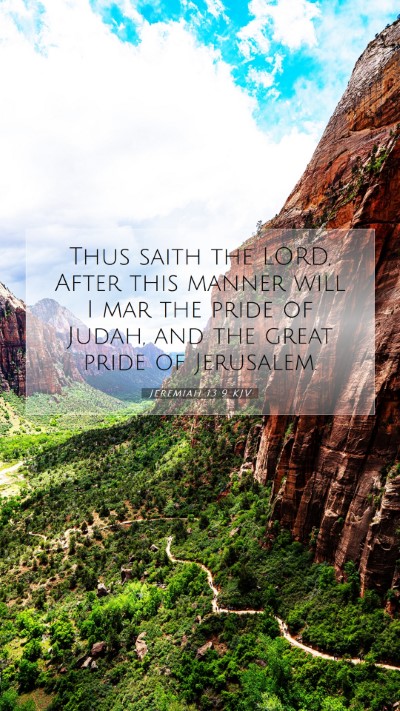Bible Verse Meaning and Commentary for Jeremiah 13:9
Jeremiah 13:9 states: "Thus saith the Lord, After this manner will I mar the pride of Judah, and the great pride of Jerusalem." This verse offers profound insights into God's perspective on pride and disobedience among His people.
Overview of the Verse
In this passage, God uses the metaphor of a belt or girdle found earlier in the chapter to illustrate the close relationship between Himself and His people. The pride of Judah and Jerusalem is highlighted as a flaw that leads towards destruction. The verse warns that just as a spoiled or flawed item is cast aside, so will the proud be humiliated by God's judgments.
Commentary Insights
The interpretations from respected public domain commentaries provide a layered understanding of this verse:
- Matthew Henry: Highlights the divine displeasure towards the haughty spirit of the people. He explains that their confidence in their own abilities, rather than reliance on God, leads to spiritual downfall.
- Albert Barnes: Emphasizes the consequences of pride and disobedience. He notes that pride leads to spiritual blindness, which contributes to the moral decay of society.
- Adam Clarke: Discusses the historical context of the verse. Clarke connects it to the Babylonian exile, interpreting it as a divine response to the persistent rebellion of the people against God.
Theological Implications
The passage presents a significant theological point about God's sovereignty and His intolerance of pride, providing a warning for future generations. It serves as a reflective mirror for our own lives, urging believers to evaluate personal pride and societal attitudes that contradict God's character.
Key Themes and Lessons
- The Danger of Pride: The verse serves as a reminder that pride often precedes destruction (Proverbs 16:18).
- Dependence on God: Judah's downfall reflects the need for reliance on divine strength instead of personal prowess.
- God's Judgment: The physical consequences that follow pride and rebellion highlight a crucial part of biblical exegesis—understanding God's just nature.
Cross References
This verse connects well with other biblical texts that reflect similar messages:
- Proverbs 16:18: "Pride goes before destruction, and a haughty spirit before a fall."
- Isaiah 2:12: "For the day of the Lord of hosts shall be upon every one that is proud and lofty."
- James 4:6: "But he gives more grace. Therefore, it says, 'God opposes the proud, but gives grace to the humble.'
Application of the Verse
Understanding Jeremiah 13:9 is crucial for applying its wisdom to daily life. Here are some insights:
- Self-Examination: Consider areas of life where pride may lead to sin or separation from God.
- Encouragement to Humility: Actively pursue humility in interactions, acknowledging God’s grace and sovereignty.
- Community Reflection: Engage in Bible study groups to discuss the implications of pride as presented in Scripture.
Conclusion
This commentary reflects on the serious theme of pride in Jeremiah 13:9 through the lens of traditional biblical scholarship. Through careful study and reflection, individuals can deepen their understanding of Scripture and apply its teachings effectively in their lives. As seen in various commentaries, pride leads to downfall, and humility earns favor with God.
Ultimately, engaging with and understanding the meanings of Bible verses through careful analysis and group discussions can foster richer spiritual experiences and lead to more vibrant faith.


